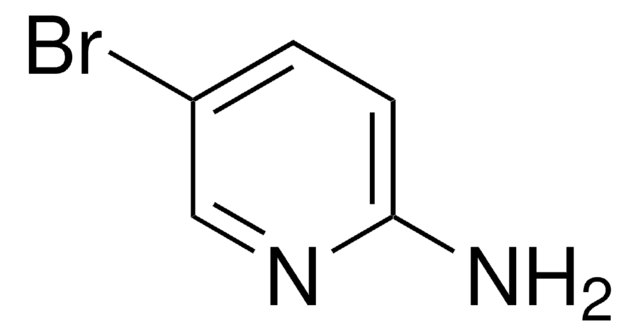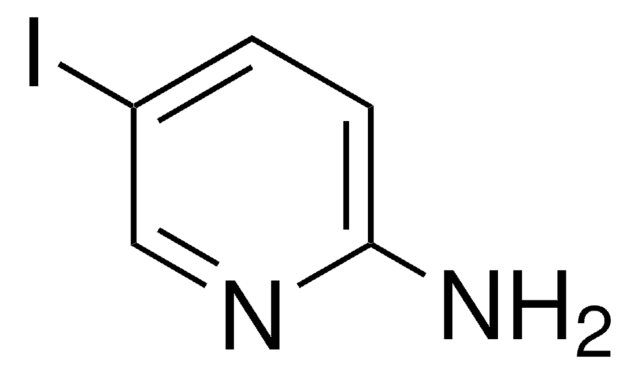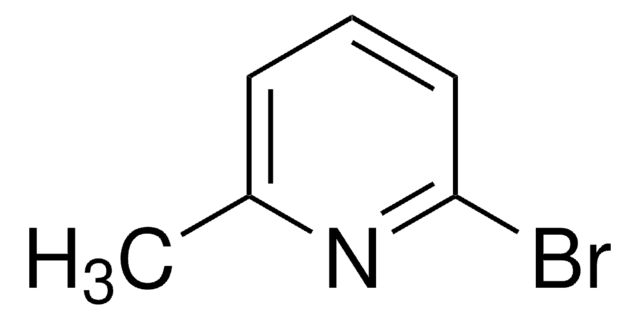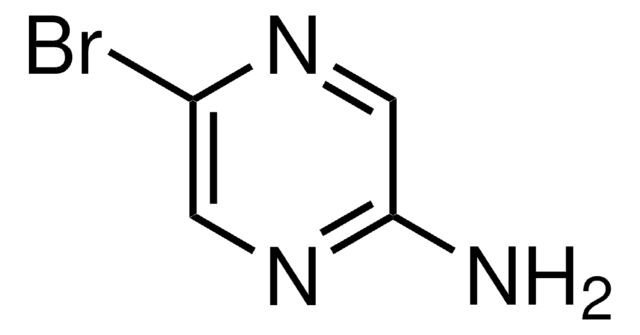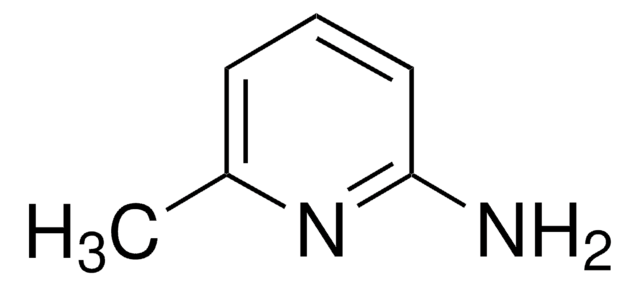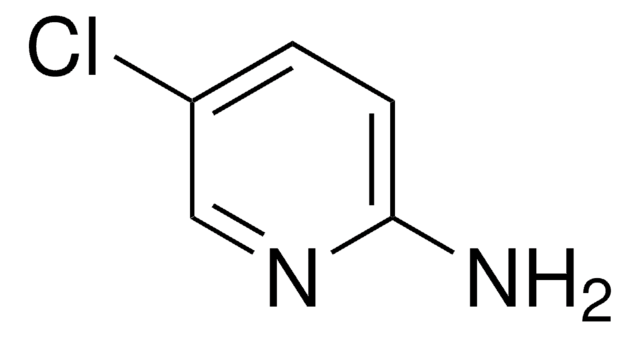All Photos(2)
About This Item
Empirical Formula (Hill Notation):
C5H5BrN2
CAS Number:
Molecular Weight:
173.01
MDL number:
UNSPSC Code:
12352100
PubChem Substance ID:
NACRES:
NA.22
Recommended Products
Quality Level
Assay
98%
mp
88-91 °C (lit.)
functional group
bromo
SMILES string
Nc1cccc(Br)n1
InChI
1S/C5H5BrN2/c6-4-2-1-3-5(7)8-4/h1-3H,(H2,7,8)
InChI key
BKLJUYPLUWUEOQ-UHFFFAOYSA-N
General description
2-Amino- 6-bromopyridine has been synthesized from epichlorohydrin.
Application
2-Amino- 6-bromopyridine may be used in the synthesis of:
- 2-amino-6-diethylaminopyridine
- 2,6-di-(methylamino)-pyridine
- 3-(6-bromopyridin-2-yl)-2-(2,6-difluorophenyl)-1,3-thiazolidin-4-one
- N-(6-bromopyridin-2-yl)dodecylamide
- 2-bromo-6-iodopyridine
Employed in an efficient one-pot synthesis of 7-azaindoles.
Used in the synthesis of anti-HIV agents.
Signal Word
Warning
Hazard Statements
Precautionary Statements
Hazard Classifications
Eye Irrit. 2 - Skin Irrit. 2 - STOT SE 3
Target Organs
Respiratory system
Storage Class Code
11 - Combustible Solids
WGK
WGK 3
Flash Point(F)
Not applicable
Flash Point(C)
Not applicable
Personal Protective Equipment
dust mask type N95 (US), Eyeshields, Gloves
Choose from one of the most recent versions:
Already Own This Product?
Find documentation for the products that you have recently purchased in the Document Library.
Customers Also Viewed
Microwave-assisted synthesis of benzimidazole and thiazolidinone derivatives as HIV-1 RT inhibitors.
Rao A, et al.
ARKIVOC (Gainesville, FL, United States), 147, 155-155 (2004)
Maria Letizia Barreca et al.
Farmaco (Societa chimica italiana : 1989), 58(3), 259-263 (2003-03-07)
This paper reports our work in the field of nonnucleoside RT inhibitors (NNRTIs). On the basis of extensive studies on 1H,3H-thiazolo[3,4-a]benzimidazole derivatives (TBZs) followed by structure-activity relationship (SAR) considerations and molecular modeling, the design and synthesis of a series of
Synthesis of ?Acetylene-Expanded? Tridentate Ligands
Holmes BT, et al.
Molecules (Basel), 7(5), 447-455 (2002)
II. Derivatives of 2, 6-Diaminopyridine1.
Bernstein J, et al.
Journal of the American Chemical Society, 69(5), 1151-1115 (1947)
Masato Ikeda et al.
Chemistry (Weinheim an der Bergstrasse, Germany), 11(2), 662-668 (2004-11-27)
The bow-shaped molecule 1 bearing a self-complementary DAAD-ADDA (D=donor A=acceptor) hydrogen-bonding array generates, in hydrocarbon solvents, highly ordered supramolecular sheet aggregates that subsequently give rise to gels by formation of an entangled network. The process of hierarchical self-assembly of compound
Our team of scientists has experience in all areas of research including Life Science, Material Science, Chemical Synthesis, Chromatography, Analytical and many others.
Contact Technical Service